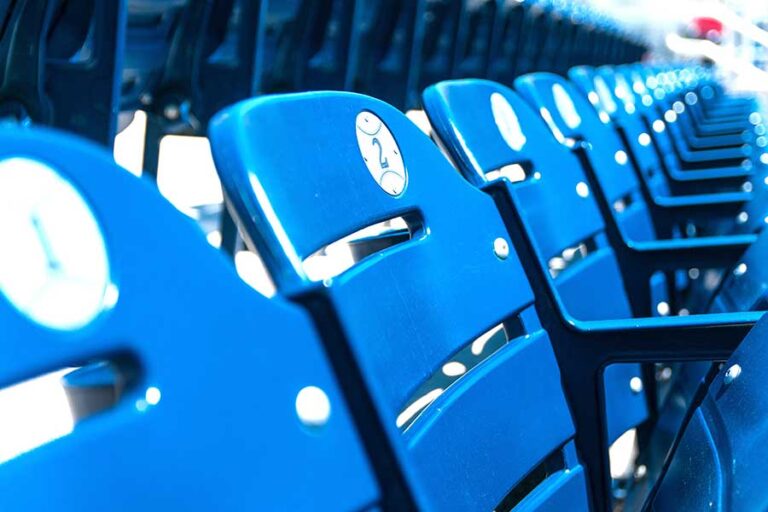
The hashkafic objection is easier to convey than the halachic one. There were communities that during the Three Weeks (some only during the Nine Days) banned outright any pleasurable activities, including hikes and visits to gardens and orchards. That ban would surely include baseball games, amusement parks, and the like. But this prohibition was not universally embraced, many people do travel during this time, avoiding only dangerous undertakings, and joy is âreducedâ but not eliminated.
Baseball games are entertainment (diehard fans might differ) but also serve a more social function than other forms of spectator entertainment. People gather, talk, eat, drink, and enjoy each otherâs company during baseball games. On that basis alone, attendance should be permissible, at least before the Nine Days.
Yet, it is also true that our leisure should find a different, more subdued expression during these weeks of mourning over the Churban. If we do the same things during the Three Weeks that we do before and after, how are we really mourning? Not shaving is relatively simple and some people enjoy the more rugged look anyway. We only really feel the Churban and grieve over the horrors of the exile that followed in its wake when we abstain from doing things that we would otherwise do and tell ourselves and others âthis is zecher lâchurban.â
The Gemara (Taanit 30b) teaches (in truth, challenges us) that âwhoever mourns for Yerushalayim will merit and see her future joy, and whoever does not mourn for Yerushalayim will not see her future joy.â Fasting twice during this period and abstaining from meat and wine during the Nine Days (for those not hungering for a siyum made by strangers!) are mandates but do not necessarily challenge us. We do not stop living during the Three Weeks, but the nature of our lives should change dramatically.
Within that balance lies the answer as to what is proper.
â Rav Steven Pruzansky is Rabbi Emeritus of Congregation Bnai Yeshurun (Teaneck, NJ), Senior Research Associate at the Jerusalem Center for Applied Policy (JCAP.ngo), and author of the Chumash commentary âThe Jewish Ethic of Personal Responsibilityâ (Geffen).
* * * * *

Before Rosh Chodesh Av there are specific prohibitions that Chazal instituted. Not attending a baseball game was not included in them. However, from Rosh Chodesh Av, aside from the specific prohibitions, there is a general mandate to reduce one’s simcha, pleasure, and enjoyment. Therefore, if one regularly attends baseball games and receives no great pleasure and enjoyment, this could be viewed as a regular pastime and not be considered a simcha.
However, if one does not regularly attend baseball games and this is a special opportunity, it could be considered a true simcha, it could be prohibited due to the mandate to reduce simcha. I think that until shavua shechol bo (the week that Tisha b’Av actually occurs) one could be lenient and after that and surely from the 7th of Av one should refrain from attending.
â Rabbi Zev Leff is rav of Moshav Matisyahu and a popular lecturer and educator.
* * * * *
 There are two potential halachic concerns regarding attending baseball games during the three weeks. The Rema (Orach Chayim, 551:2) rules that weddings should not take place during the three weeks, and the Magen Avraham extends this prohibition to include “rikudin uâmecholot,” or dances and celebrations. This Magen Avraham is the basis for the prohibition against listening to music during the three weeks, and the exact nature of this prohibition is subject to dispute. Many poskim hold that since the music at a baseball game is incidental, one may attend a baseball game during the Three Weeks.
There are two potential halachic concerns regarding attending baseball games during the three weeks. The Rema (Orach Chayim, 551:2) rules that weddings should not take place during the three weeks, and the Magen Avraham extends this prohibition to include “rikudin uâmecholot,” or dances and celebrations. This Magen Avraham is the basis for the prohibition against listening to music during the three weeks, and the exact nature of this prohibition is subject to dispute. Many poskim hold that since the music at a baseball game is incidental, one may attend a baseball game during the Three Weeks.
Rav Soloveitchik believed that the three-week period mirrors the twelve months of mourning observed after the death of a parent. During this twelve-month period, one should refrain from âsimchat meâreiut,â or events of joyous friendship. If one agrees with this analysis, attending a baseball game might constitute âsimchat meâreiutâ as it a joyous gathering of a lot of people. According to this approach, one may not attend a sports game during the Three Weeks.
However, other poskim rule that there is no mention of any prohibition of simcha in the halachot of the Three Weeks, and therefore, one would be permitted to attend a baseball game during this time. Attending a baseball game during the Nine Days might be more problematic according to this approach, because the Shulchan Aruch rules that we should minimize simcha, or happiness, during this period (Orach Chayim 551:1). However, some poskim hold that going to a baseball game is not the type of simcha that must be minimized during the Nine Days and therefore, we can attend a baseball game even during the Nine Days.
â Rabbi Jonathan Muskat is the rabbi of the Young Israel of Oceanside, a rebbe at Shulamith High School, and a pastoral health care liaison at Mount Sinai South Nassau.


